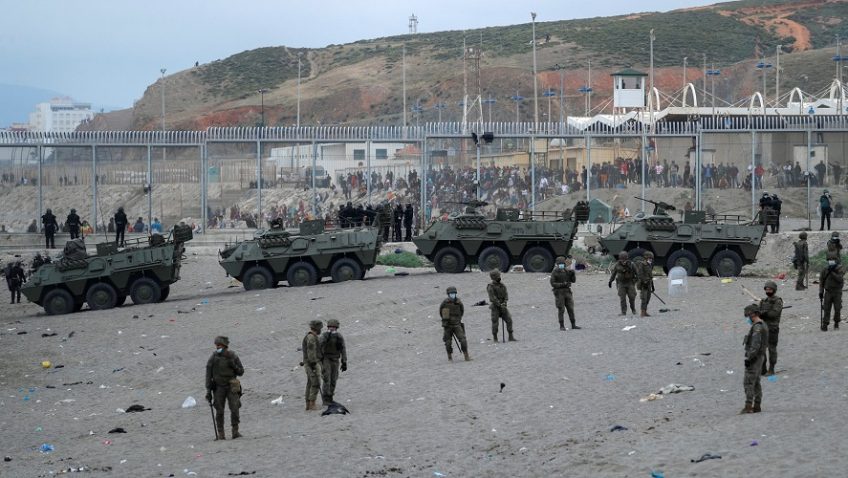On Sunday 28 May 2023, municipal and regional elections will be held in Spain. On this occasion, Santiago Abascal, leader of the extremist political party “VOX”, visited the city of Ceuta, comparing it to the city of Beirut, and pledged to fight against what he called the “Moroccanisation of the city”.
Next Sunday’s elections are very important as they will give a rough idea of the results of next year’s parliamentary elections. Opinion polls for the municipal and regional elections give a slight advantage to the Socialist Party, which leads the left-wing coalition government.
As usual, Morocco is again very present in this electoral campaign. Especially on the issue of immigration, and also after a violent political confrontation in the parliament about the position of the chief government Pedro Sánchez on the Sahara conflict. Sánchez supports the Moroccan autonomy proposal as a solution to the conflict, while most of the Spanish political parties reject what they consider as a change in Madrid’s traditional policy on the conflict.
Special attention is given to Ceuta, Melilla and particularly Ceuta, as the far-right nationalist party Vox could become the leading political force in the city and aspires to form an autonomous government there. Ceuta and Melilla enjoy autonomy, but with fewer powers than regions such as the Basque Country, Catalonia, Andalusia or Galicia.
According to the Spanish press, before starting the event organised in a hotel in Ceuta on Sunday 21 May, Abascal walked through several streets of Ceuta with the feeling, as he said, “of being in Beirut”. “I know what fear is, and Ceuta is a city of fear,” said the Vox leader, who was surprised by the large number of national police officers who escorted him on his visit to the city. “Such a police presence makes you fear something; it was like Hernani,” he commented.
This so-called problem of insecurity is one of the axes of the far right’s campaign, especially in Ceuta. According to Vox’s diagnosis, the origin is “consenting” irregular immigration, and the culprits are: the government for the “lack of control” at the border, and Morocco for the migratory pressure it exerts on Spain. This is why he called on the population to fight against what he called the “Moroccanisation” of Ceuta in next Sunday’s elections. “There is no religious problem here, but a problem of territorial identity and national identity, which they have destroyed,” he insisted. By comparing Ceuta to Beirut or Hernani – one of ETA’s strongholds in the Basque Country – this extremist politician suggests that Ceuta is a city threatened by terrorism from all sides, armed gangs and a total lack of security, and that it is losing its European identity as if it were Beirut in the Middle East.
Both in Morocco and in Spain, it is feared that the victory of this extremist party will cause tensions in Ceuta. Ceuta is ethnically and religiously divided, with half of its population composed of Christians and the other half of Muslims. Rabat considers Ceuta and Melilla (northern Morocco) as part of Moroccan territory under Spanish occupation, but has postponed its claim by virtue of the priority it gives to the Sahara issue.

